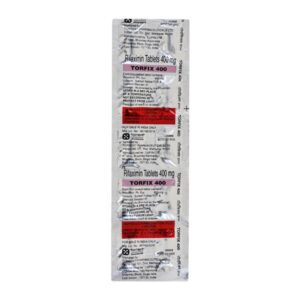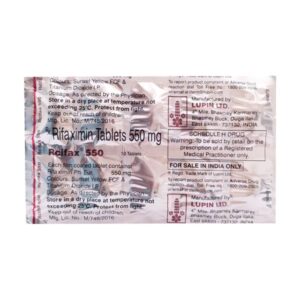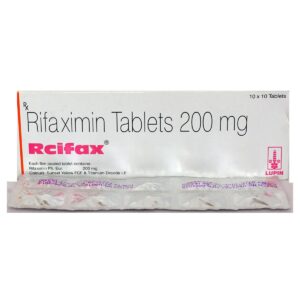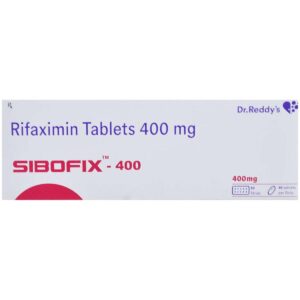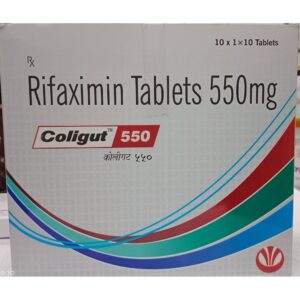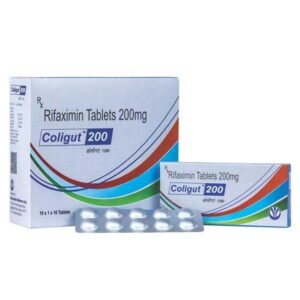RIFAXIMIN
RIFAXIMIN: Rifaximin is a medication that is primarily prescribed for the treatment of certain types of bacterial infections in the intestines. It belongs to a class of drugs known as rifamycin antibiotics.
The primary use of Rifaximin is for the treatment of traveler’s diarrhea caused by non-invasive strains of Escherichia coli (E. coli). It is also used for the prevention of episodes of overt hepatic encephalopathy (HE) in adults with liver disease.
The mechanism of action of Rifaximin involves inhibiting the growth of bacteria by binding to the bacterial DNA-dependent RNA polymerase enzyme, which then interferes with the synthesis of bacterial RNA. This prevents the bacteria from multiplying and spreading in the intestines.
The standard recommended dose of Rifaximin for traveler’s diarrhea is 200 mg three times a day for three days. The dose for the prevention of hepatic encephalopathy is 550 mg twice daily. The treatment durations may vary based on the specific condition and the severity of the infection, so it is important to follow the instructions of the healthcare provider.
Side effects of Rifaximin are generally mild, and some of the common ones include nausea, abdominal pain, flatulence, headache, and an increase in liver enzymes. Serious side effects are rare but may include allergic reactions and severe liver problems. It is important to seek medical attention if any severe or persistent side effects occur.
It should be noted that Rifaximin is not effective against all types of bacterial infections, and it does not work against viral infections like the common cold or flu. It is important to consult with a healthcare provider to determine if Rifaximin is the appropriate treatment for a specific condition.


